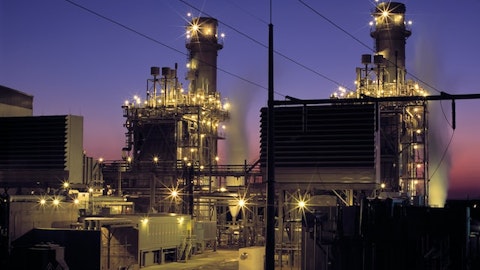In this article, we will analyze the list of the best dividend stocks of all time.
Dividend stocks aren’t a quick fix for investing; they offer lasting rewards over time. Unfortunately, many investors miss the boat on this and expect to strike it rich overnight. When that doesn’t pan out, they chase the latest stock market trends, ignoring the steady gains that dividend stocks can provide. This trend has been evident over the past year, with AI stocks taking the spotlight and leaving income stocks in the dust. However, there’s a silver lining: many tech companies have begun offering dividends this year, highlighting their long-term potential.
The current yields of these tech stocks might be small, which leads many income investors to overlook their impressive growth records. This is unfortunate because dividend growth can significantly boost both long-term income and capital gains. Analysts believe that dividend growth and sustainability are more crucial than just the yield. For instance, Microsoft’s roughly 864% return over a decade far outpaces the returns from non-tech stocks like AT&T and Chevron, despite their higher yields. The tech giant currently pays $0.75 per quarter and offers a dividend yield of 0.7%. However, you need to keep in mind that its quarterly dividend was $0.28 a decade ago and its dividend yield was 2.5%. Despite the nearly tripling its quarterly dividend, the stock’s yield went down to 0.7% and that was a great thing for its dividend investors.
Dividend stocks are often compared not just with high-yield stocks but also with those that don’t pay dividends to provide investors with a comprehensive view. According to data from Hartford Funds, from 1973 to 2023, dividend-paying companies offered an average annual return of 9.17%, while stocks without dividends only returned 4.27%. The report also noted that companies with stable dividends had an average return of 6.74%, which lagged behind the performance of companies that increased their dividends.
While regularly increasing dividends is challenging, maintaining consistent payouts year after year is also no easy feat for companies. Analysts warn against yield traps—stocks with high yields but unstable dividend policies. Brian Bollinger, president of Simply Safe Dividends, shared his views on dividend investing in a CNBC interview. He recommended focusing on top-quality companies, which often provide dividend yields of around 3% to 4%. These firms usually show steady growth in their dividend payments, boosting the annual income stream and helping to counteract inflation. He also pointed out that stocks with lower yields tend to be safer investments with more reliable payout structures.
In this article, we will take a look at some of the best dividend stocks of all time that have consistent records of paying dividends to shareholders.

Stocks chart
Our Methodology:
For this article, we scanned the list of companies that have paid dividends to shareholders for at least 75 years. From that list, we picked companies with dividend yields of above 2%, as of July 23. We analyzed these companies through their balance sheets and overall financial health to determine their dividend stability. Additionally, we assessed the sentiment of hedge funds for each stock using Insider Monkey’s Q1 2024 database. The stocks are arranged in ascending order based on the number of hedge funds that hold stakes in these companies. Why are we interested in the stocks that hedge funds pile into? The reason is simple: our research has shown that we can outperform the market by imitating the top stock picks of the best hedge funds. Our quarterly newsletter’s strategy selects 14 small-cap and large-cap stocks every quarter and has returned 275% since May 2014, beating its benchmark by 150 percentage points. (see more details here).
10. Hormel Foods Corporation (NYSE:HRL)
Number of Hedge Fund Holders: 27
Dividend Yield as of July 23: 3.62%
Hormel Foods Corporation (NYSE:HRL) is a Minnesota-based food processing company that deals in a wide range of consumer-based food and meat products. Recently, the company has been facing business headwinds as it is significantly exposed to poultry and pork because of its turkey operations and pork-based products such as lunch meats, pepperoni, and proteins. Fluctuating commodity prices for these meats have impacted its business. From 2018 to 2023, the company faced challenges including outbreaks of swine fever and bird flu, along with the operational constraints and market disruptions caused by the COVID-19 pandemic. In addition, the company made the big move by acquiring the Planters snack brand for $3.3 billion in June 2021, which also couldn’t prevent earnings from declining and has added more debt to the company’s balance sheet. Since then, the stock has fallen by over 36%.
That said, Hormel Foods Corporation (NYSE:HRL) reported stable volumes across different segments in fiscal Q2 2024, with food service volumes notably rising by 2.9% compared to the previous year. The first half of the year was strong, featuring consecutive quarters where earnings exceeded expectations and a significant boost in operating cash flows. The company also made headway on strategic initiatives and is on track to achieve its goals for enhancing business performance and driving long-term growth and shareholder returns. So far this year, the company has generated over $640 million in operating cash flow, reflecting a 55% increase from the same period last year.
Hormel Foods Corporation (NYSE:HRL) also holds a competitive advantage due to its strong dividend history. The company has been making regular dividend payments to shareholders since it went public in 1928. Moreover, it also holds a 58-year streak of consistent dividend growth, which makes it one of the best dividend stocks of all time. The company offers a quarterly dividend of $0.2825 per share and has a dividend yield of 3.62%, as of July 23.
At the end of the first quarter of 2024, 27 hedge funds tracked by Insider Monkey held stakes in Hormel Foods Corporation (NYSE:HRL), growing from 25 in the previous quarter. The consolidated value of these stakes is over $604.3 million.
9. Stanley Black & Decker, Inc. (NYSE:SWK)
Number of Hedge Fund Holders: 29
Dividend Yield as of July 23: 3.70%
Stanley Black & Decker, Inc. (NYSE:SWK) is an American manufacturing company that deals in industrial tools and household hardware. Over the past four years, global trends have shifted, and the company gained popularity among consumers during the DIY boom during the pandemic. However, it has since struggled to regain its footing. In 2023, the company’s revenue declined and it faced increased costs due to the supply chain issues that followed the economic reopening. Since touching its all-time high in May 2021, SWK has fallen by over 60% through July this year.
We are also concerned about Stanley Black & Decker, Inc. (NYSE:SWK)’s consumer weaknesses, but these can be addressed with various strategies. The company has demonstrated its capability in this area by shifting focus to different business segments. The Tools & Outdoor segment, where the company holds a dominant position, saw its margin increase to 7.8% year-over-year in the first quarter of 2024, a rise of 720 basis points from the previous year. Although the segment’s revenue for the quarter declined slightly by 1% compared to the same period last year, the company exceeded analysts’ expectations in the quarter. The company reported an EPS of $0.56 and revenue of $3.87 billion, surpassing Street consensus estimates by $0.01 and $35.7 million, respectively. Looking ahead, it expects varying demand trends across its businesses in 2024. To address this, it is focusing on reducing supply chain costs to improve margins, drive earnings growth, and generate strong cash flow. In addition, the company is investing in growth initiatives to foster innovation and develop distinctive market strategies, aiming to capitalize on promising long-term opportunities.
Stanley Black & Decker, Inc. (NYSE:SWK), one of the best dividend stocks of all time, has never missed a dividend over the past 147 years. It has also increased its payouts for 57 years running. The company pays a quarterly dividend of $0.81 per share and has a dividend yield of 3.70%, as of July 23.
As of the close of Q1 2024, 31 hedge funds in Insider Monkey’s database owned stakes in Stanley Black & Decker, Inc. (NYSE:SWK), which remained unchanged from the previous quarter. These stakes have a collective value of more than $715 million. Among these hedge funds, Millennium Management was the company’s leading stakeholder in Q1.





